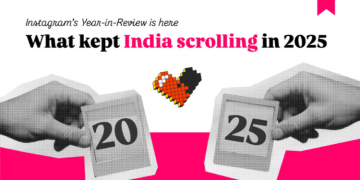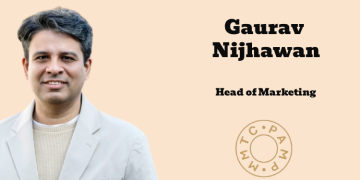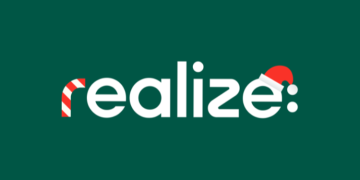The world is staring at what is possibly the biggest turning point in history; almost as big as the World wars. And while global economies, communities, and businesses continue to reel under the impact of lockdowns imposed in several countries, one can only wonder how significantly this is going to impact the landscape of brand advertisement.
Being extra sensitive and showing empathy seems to be the key to winning the game of advertising during this phase. Everyone is taking it upon themselves to be the harbinger of awareness and sensitivity. But, will this trend continue even after we are past this crisis?
The biggest factor of any transition will be rebound in demand. The evolution of consumer consumption patterns in each sector will hugely influence the manner in which marketers and Ad gurus may tweak the messaging. Beyond taking steps to enforce a better workplace culture, businesses and entire industries are gearing up to adapt to the situation, and exploring opportunities amidst the chaos of this pandemic.
For a lot of Asian countries, coronavirus is not the first of its kind. Remember the 2003 SARS outbreak? It taught us a lot of valuable lessons while showing us how a disease could put in place campaign holds and budget reassignments. Moreover, it also paved the way for certain businesses to succeed. In 2003, when people got stuck in their homes, e-commerce surged like never before. Alibaba is the biggest example of that success.
However, whereas it can be safely assumed that digital enterprises of all sorts should witness business boom due to this crisis, it will be interesting to watch the evolution of some of the other brick and mortar businesses, more dependent on larger social interactions and behaviors.
Take the case of the travel industry, which is by far the biggest loser in this coronavirus chaos. Right now it is crucial for businesses to prepare for the imminent travel rebound once this is resolved. Travelers across the world are definitely going to make up for the lost time by seeking out unique, soul-searching travel experiences. Is it possible that businesses in this industry will reap the benefits of these new travel trends by placing more importance on creating inspirational travel content to build purchase intent? Or maybe we will see a rise in medical and wellness tourism, given the fact that travelers will start taking an increasingly cautious approach to managing their health. Vienna Tourism, for instance, had an extremely clever LinkedIn post on armchair tourism and how the city’s museums and splendors can be accessed from the comfort of homes with an access link provided. Similarly, the Event Management Association of Kerala also put out a beautiful video of a Kathakali artist being greeted with a Namaste and using hand sanitizer with the message “Let’s start welcoming visitors like this…Take Precaution, Fight Corona Virus”. It’ll be interesting to see if all travel brands take a similarly cautious approach or stick to conventional messaging while hoping for demand to revive.
The pandemic has also disrupted the automobile industry. Major production hubs and supply chains are at high risk due to the lockdown. Companies like Hyundai and Toyota have already pivoted their respective marketing messages to be more caution driven. Hyundai has planned to cancel its regular ad spots to promote its spring sales event. The new campaign will pan out on the broadcast, digital and social media and highlight the company’s Assurance Job Loss Protection program that defers payments for people who recently bought or leased a car and lost their job during a certain timeframe. Similarly, Toyota’s new ad message “We Are Here For You” entails the importance of showing solidarity with the customer in difficult times.
Like the automobile industry, the beauty industry is also coming up with new strategies and ideas to reassure people during these difficult times through their product line and messaging. Safety and promoting hygiene will hugely impact brand positioning and purchase decisions. For instance, skin-care brand Recess introduced Bacteria Fighting Face Wipes, which contain benzalkonium chloride that the brand claims can kill the flu virus. Many local beauty brands aware of consumers’ concerns are giving suggestions about how to use products to avoid skin issues caused by the prolonged wearing of face masks and simultaneously highlighting bacterial benefits. We will probably witness a new kind of communication where these brands will promote products that can fight bacteria and are safe to use, instead of focusing on the traditional trope of beauty.
For the food and beverage industry, another big player in the scheme of things, what can the brand stories look like? Now that our current – and possibly future –vigilance around personal hygiene becomes a reality, will food brands respond to this by harping more on communication around food safety than taste? It is entirely possible given the recent hullabaloo around a KFC ad from the U.K. whose sole focus was a slow-motion close-up of people licking their fingers in public. Obviously, there were complaints, and the brand announced that it was hitting pause on the campaign.
Another major factor in this transition will be the duration of this crisis. The longer it takes for consumer demand to revive, More the pressure on companies to innovate & expedite sales. So if it takes a relatively longer time for things to get back to normal, we will probably see a lot of advertisers adjusting the content of their ads significantly to match the new social, political and cultural norms. And if the transition in consumer consumption pattern is long term, it may force companies to relook at their marketing planks for good.
Co-authored by – Debarati Dasgupta and Ayantika Halder
















